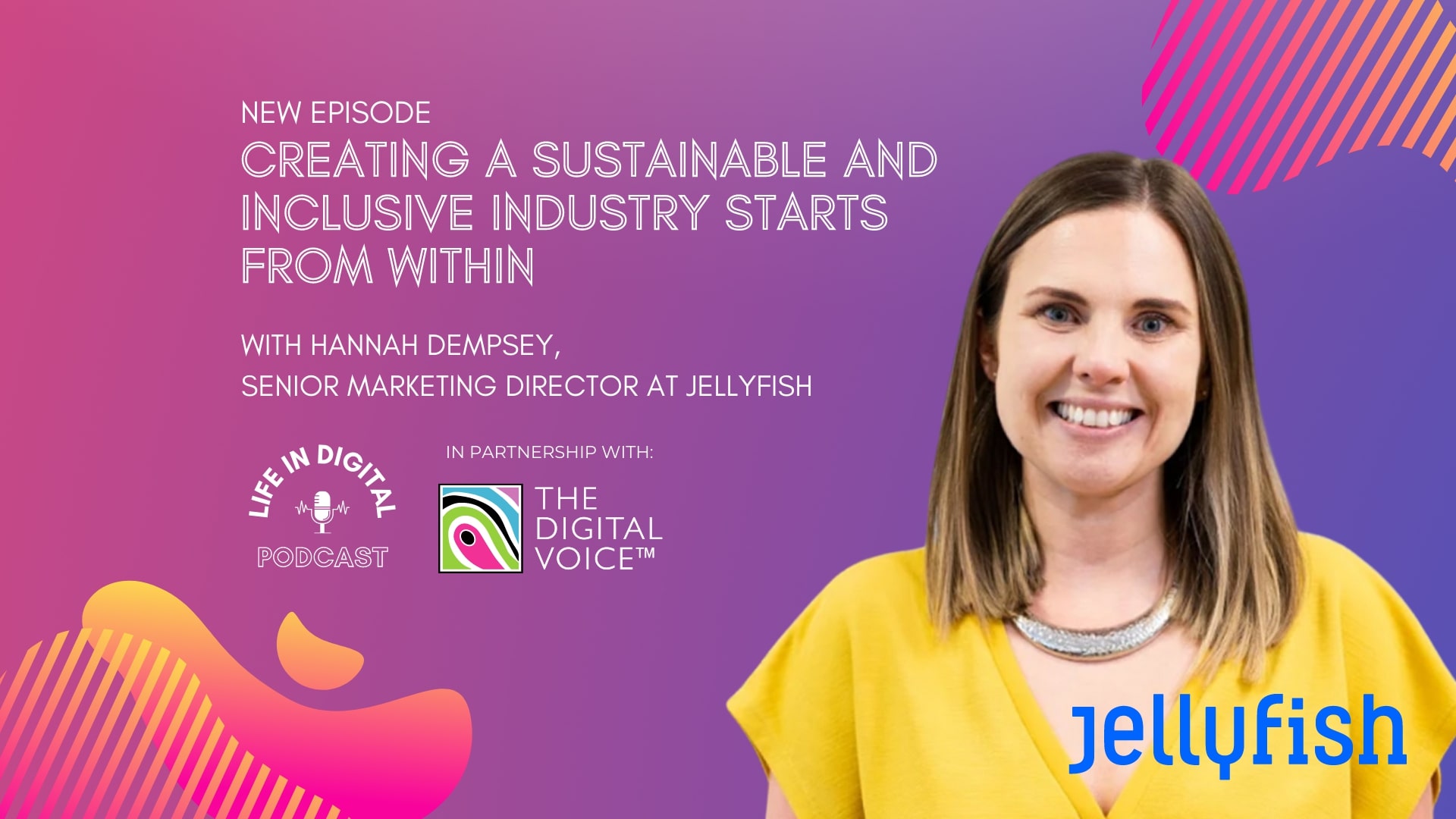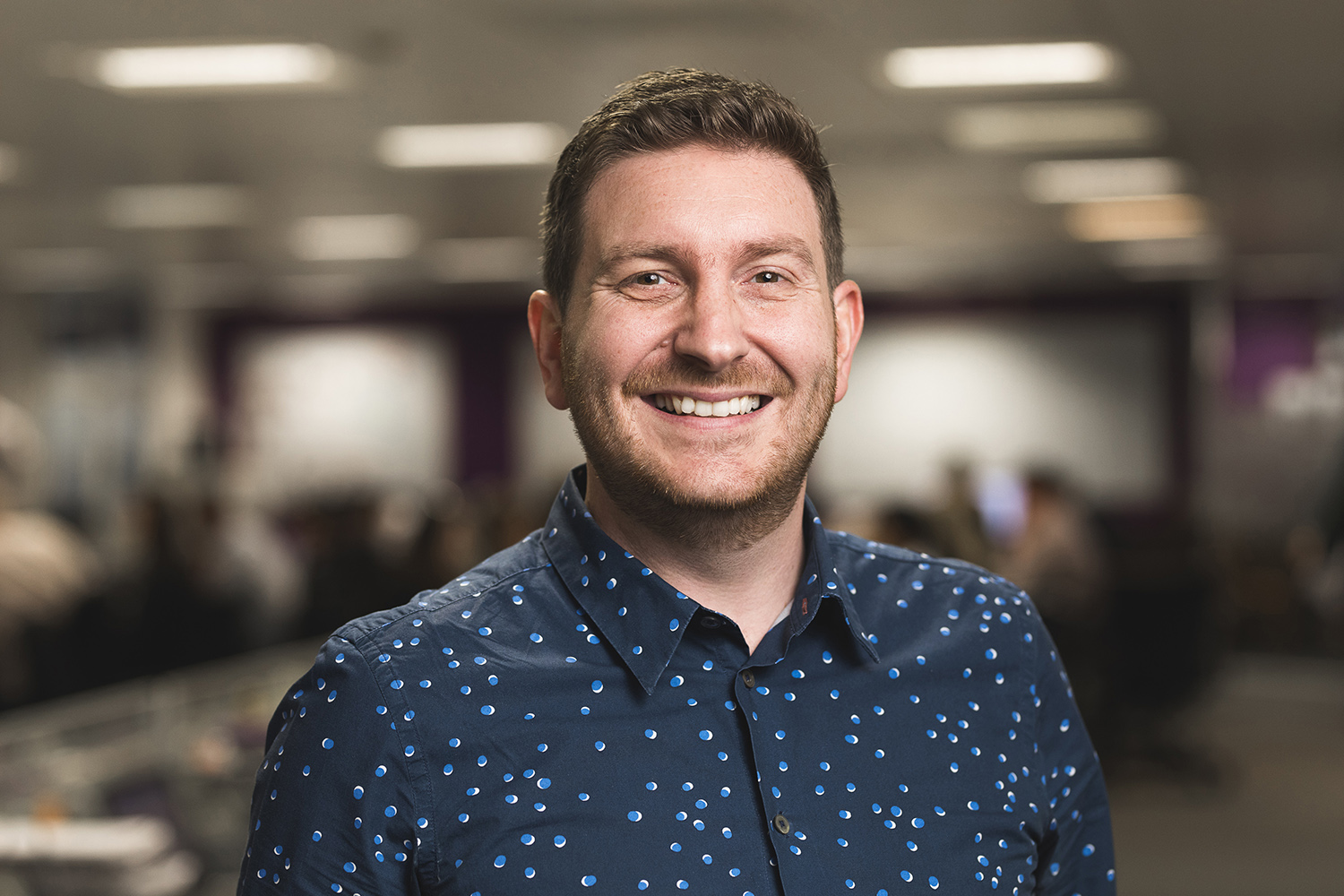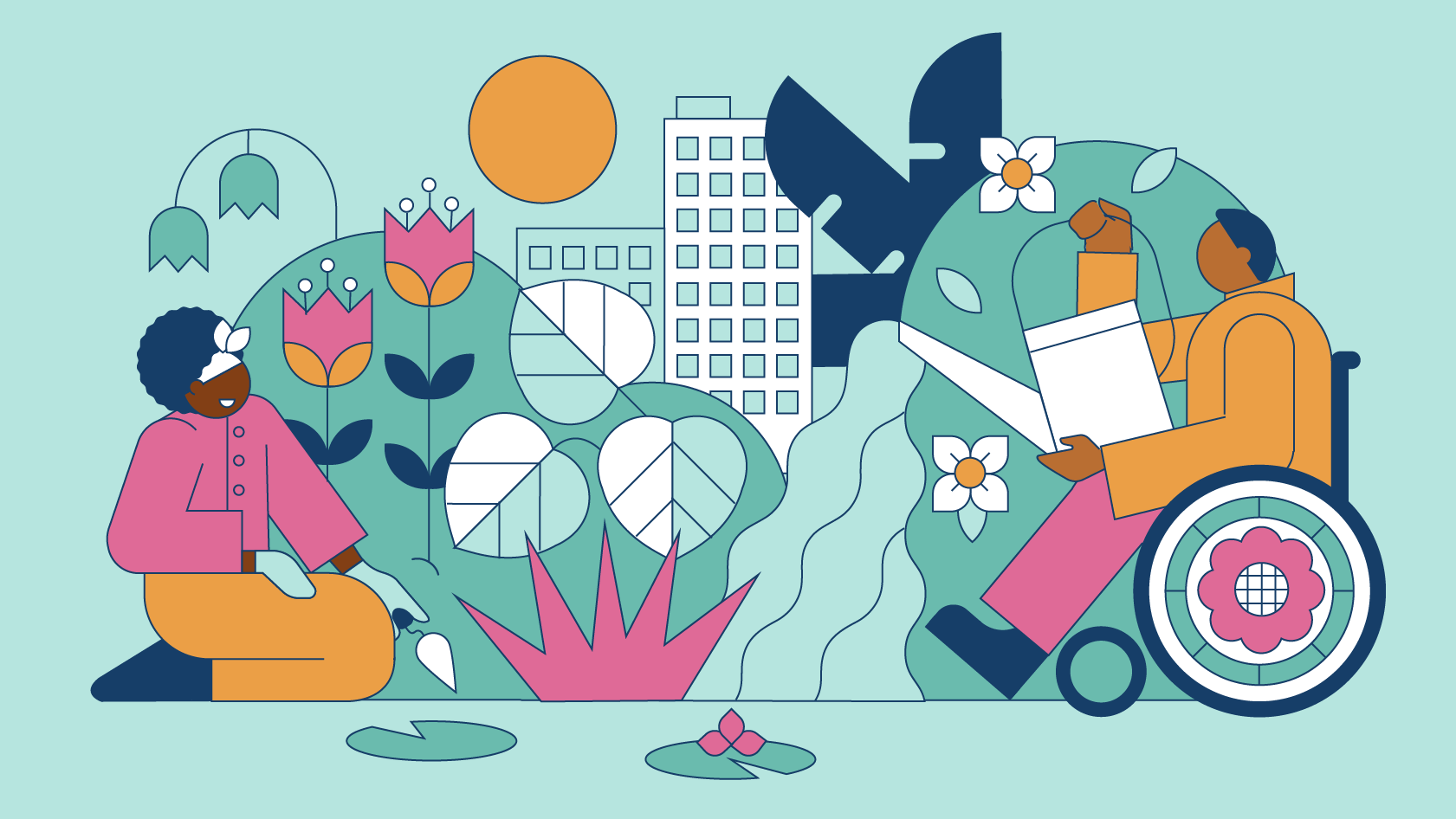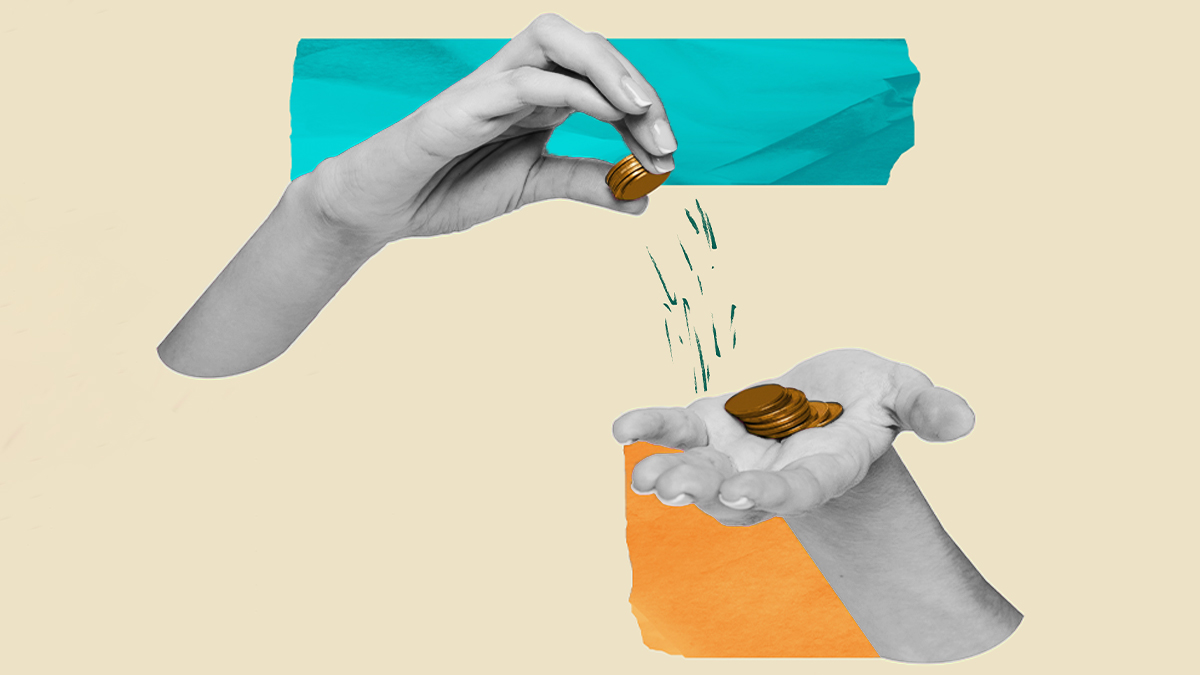
Creating a sustainable and inclusive industry starts from within: insights from Hannah Dempsey
26 Jul, 20235 minsSustainability. Diversity, equity, and inclusion. Powering through a recession.Advertising h...

Sustainability. Diversity, equity, and inclusion. Powering through a recession.
Advertising has a lot on its plate at the moment, and while it’s all spurred on by a desire to make positive change in the industry, it can also be daunting for brands to take on.
Where do you even begin? How are you, one company on a planet with over seven billion people, supposed to make fundamental societal changes?
The key lies in culture; in starting from within. It’s about building small changes into the heart of your company that emanate, which is exactly what our latest Life in Digital Podcast guest, Hannah Dempsey, has been doing in her role as Senior Marketing Director at performance marketing agency Jellyfish.
With a career in advertising spanning 12 years, Hannah reveals the steps Jellyfish has taken to make a difference - and some of the initiatives they have implemented to help their clients succeed.
Education forward; setting clients up for success
Hannah knows just how important it is to deliver results-driven campaigns for clients, but there is one thing she says that trumps this - education.
“Here at Jellyfish, we help brands with their marketing and social listening - all great stuff. But we started to realise that we’d be in the boardroom presenting our ideas, execution, and analytics, and it would be lost on some of them. So, we set up a training division - a team of people that would teach clients the basics.”
And it makes sense. How are clients supposed to make positive changes to their marketing strategy if they don’t understand core terms and analytics?
Keeping company culture intact with acquisitions
Acquisition tends to be a loaded word that often has employees on the edge of their seats, wondering what kind of change the ‘the big changeover’ will bring. But, having recently experienced an acquisition at Jellyfish, Hannah says it doesn’t have to spell the end of a company’s culture. If you’ve got the right team in place, it can enhance it.
“Obviously, Jellyfish has changed with our recent acquisition - that’s a given. But we have a whole new leadership team in place now, and they’re bringing in fresh perspectives. I think that’s the way you need to look at it - things will change, but that doesn’t mean it can’t be positive. There’s a whole new breadth of opportunities for the company and its culture, and that can only be good.”
Sustainable advertising is no longer a nice-to-have
More and more brands are jumping on the sustainability bandwagon, and for good reason. Two thirds of customers (66%) consider sustainability when making purchases, so you need to position yourself as an eco-friendly brand and do all you can to keep your emissions low.
Looking good as a company shouldn’t be your only driver when committing to ad net zero policies. Instead, Hannah believes brands should build a culture of sustainability from within, a bit like the phrase ‘talk the talk and walk the talk.’
“We’ve really honed in on long-term sustainability the past year, and while part of that is because we want to attract clients, an even bigger (and more important) driver is a genuine desire to do better. As citizens of this world, we have a requirement to give back and ensure that we’re doing everything we can to look after the planet. A half-hearted pledge, focussed on simply fitting in and not getting ‘cancelled’, won’t last long.”
A lesson in ad net zero comms
With so much sustainability jargon in the industry, it’s easy to get confused. Ad Net Zero was created with one clear mission - to reach net zero emissions in advertising by 2030.
“It’s a collection of agencies and companies that get together, pledge to do better, and actually get out there and start driving incremental change. I think that people misunderstand the core of it though. It’s not just about creating a five-step plan of things you’re going to do to lower emissions. It goes deeper than that. To be part of it, you need to have your own unique sustainability ambition - your own special goal that contributes towards making the industry a better place.”
And Jellyfish?
“We’re part of the alliance and have focused on making small, everyday changes to our advertising process. Take ad placements. We’ve discovered that it’s not just about the amount of electricity being generated that’s harmful; it’s also the colours you use on the screen. Some emit more emissions than others, so knowing those things and actually applying those learnings into our marketing has been really helpful in getting us closer to our net zero goals.”
Get smarter with bidding
Once internal teams have mastered sustainability, it’s important to inspire clients to do the same, carrying forward what you’ve learned and sharing it with them so they can use it to make a difference.
“At Jellyfish, we’ve started an initiative where we ask all our paid media clients to run at least one campaign with us that uses green technology. Our proprietary tech, J+, helps brands lower their carbon emissions through smarter bidding around search campaigns, and you can set the algorithm so it only ever places your ads in eco-friendly environments.”
It might sound like a painstaking process, but Hannah argues that it’s the opposite.
“Asking clients to get on board with your sustainability initiatives isn’t actually that difficult. The majority of brands already have it on their agenda, especially if stakeholders are involved, and a lot of them will be aiming for things like a B Corp status, so you’d only be helping them achieve their wider goals.”
Equality starts with education
Another big initiative that brands are striving to implement is diversity, equity, and inclusion (DEI). But beyond creating policies, Hannah believes that many companies are missing the bigger picture.
“A lot of inequality stems from a lack of understanding - a lack of education. So if you focus on filling in those gaps first, you’ll be building a much stronger foundation for those DEI policies that you intend to roll out. There’s this amazing book by Glennon Doyle called Untamed, which sheds light on something we all face - our own biases. It’s those biases that get in the way of us being a more equal society. But education can help uncover those biases.”
You can find the full episode and more on our Life in Digital podcast. To learn more about how you can deliver better-performing, more sustainable campaigns, visit jellyfish.com.



